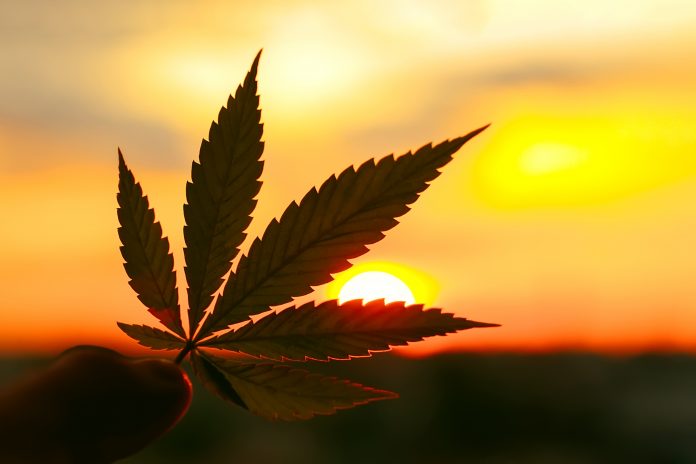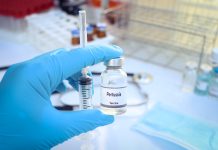DragonflyCBD has conducted research into the effects of CBD oil in aiding stress and anxiety, here they discuss their findings
Stress is catapulting at an alarming rate, so much so that almost half of us (48%) are feeling more stressed than we did a year ago, and it’s having an impact on the nation’s health.
Looking at the physical impacts of stress, new research[1] from DragonflyCBD®, found that that two in five people (43%) experience headaches and a similar number suffer from low energy (43%), whilst an upset tummy impacts around a third (30%).
As well as physical illness, stress also has an impact on mental health. When experiencing the effects of this mood, half of us (50%) get grumpy, 39% get angry at the smallest of things, a third (33%) say they shut themselves off and don’t want to speak to anyone, and worryingly, two in five (40%) say they have trouble sleeping.
Community pharmacist, Sultan ‘Sid’ Dajani, who has a special interest in CBD, says: “The impact of stress can have a disastrous effect on our day-to-day lives in an all manner of areas. When seeking remedies for stress and anxiety, these can typically be time-intensive and often involve long NHS waiting times, whereas there are solutions available over the counter, such as CBD oils, which appears to reduce negative effects associated with stress.”
But despite the increasing prevalence of online activity, cyberbullying and peer-pressures, it’s not keeping up with social media that is making us most stressed.
The research indicates that work (49%), finances (43%) and feelings about ourselves (31%) are some of the top causes of stress, and it’s taking its toll on the nation’s health.
GP, Dr Jenkins adds: “CBD is becoming increasingly popular following the media attention given to the recent change in Drugs Regulation that made medical cannabis available on prescription for the first time since 1971 for certain conditions such as intractable epilepsy.”
The science behind CBD
CBD appears to reduce the cardiovascular response to models of stress.[2] In blood, CBD influences the survival and death of white blood cells, white blood cell migration and platelet aggregation,[3] all of which can be linked with stress. A double-blind randomised controlled cross-over study in healthy male volunteers found that acute administration of CBD reduces resting blood pressure and the blood pressure increase to stress in humans, associated with increased heart rate.[4]
Evidence from laboratory studies have shown that CBD has anti-anxiety affects and may help to regulate learned fear by reducing its expression,[5] with beneficial effects on emotions.[6]
In other laboratory studies, CBD has been shown to reduce conditioned fear[7] and anxiety.[8],[9],[10],[11] Reductions in anxiety appear to be mediated by the interaction of CBD with the 5HT1-A[12] and not dependent on the benzodiazepine receptors used by medication such as diazepam.[13]
Pre-clinical studies also demonstrate an antidepressant effect of CBD,[14],[15],[16],[17] possibly, as in anxiety, through a 5-HT1-A receptor-dependent mechanism.[18],[19]
A double-blind placebo-controlled study with social anxiety disorder found that treatment with CBD before simulated public speaking significantly reduced anxiety, cognitive impairment and discomfort in their speech performance, and significantly reduced alert levels in their anticipatory speech. The placebo group presented higher anxiety, cognitive impairment, discomfort, and alert levels when compared with the control group. The Negative Self-Assessment Scale (SSPS-N) scores revealed significant increases during the testing of placebo group that was almost eliminated in the CBD group.[20]
CBD has also shown benefits for anxiety in a clinical trial involving 103 adult patients. This was a retrospective study in a psychiatric clinic involving clinical application of CBD for anxiety and sleep complaints as an adjunct to usual treatment. The final sample consisted of 72 adults presenting with primary concerns of anxiety (n = 47) or poor sleep (n = 25). Anxiety scores decreased within the first month in 57 patients (79.2%) and remained decreased during the study duration. Sleep scores improved within the first month in 48 patients (66.7%) but fluctuated over time. [21]
Sources
[1] OnePoll Survey. Dragonfly CBD Research. Autumn 2019. Data on file.
[2] https://www.ncbi.nlm.nih.gov/pubmed/22670794
[3] https://www.ncbi.nlm.nih.gov/pubmed/22670794
[4] https://www.ncbi.nlm.nih.gov/pmc/articles/PMC5470879/
[5] https://www.ncbi.nlm.nih.gov/pubmed/31030284
[6] https://www.ncbi.nlm.nih.gov/pubmed/28268256
[7] https://www.ncbi.nlm.nih.gov/pubmed/19800921
[8] https://www.ncbi.nlm.nih.gov/pubmed/16876926
[9] CNS Neurol Disord Drug Targets. 2014;13(6):953-60
[10] Prog Neuropsychopharmacol Biol Psychiatry. 2013 Mar 5;41:30-5.
[11] Behav Brain Res. 2015 Jun 1;286:49-56
[12] CNS Neurol Disord Drug Targets. 2014;13(6):953-60
[13] https://www.ncbi.nlm.nih.gov/pubmed/16876926
[14] https://doi.org/10.1016/j.pbb.2010.03.004
[15] https://doi.org/10.1159/000443890
[16] https://www.ncbi.nlm.nih.gov/pubmed/26711860
[17] https://www.ncbi.nlm.nih.gov/pubmed/26801828
[18] https://www.ncbi.nlm.nih.gov/pubmed/26711860
[19] https://www.ncbi.nlm.nih.gov/pubmed/26801828












Well I think it’s true that staying away in social media would lessen a person stress (cyberbullying) and maybe dancing to because of the endorphins